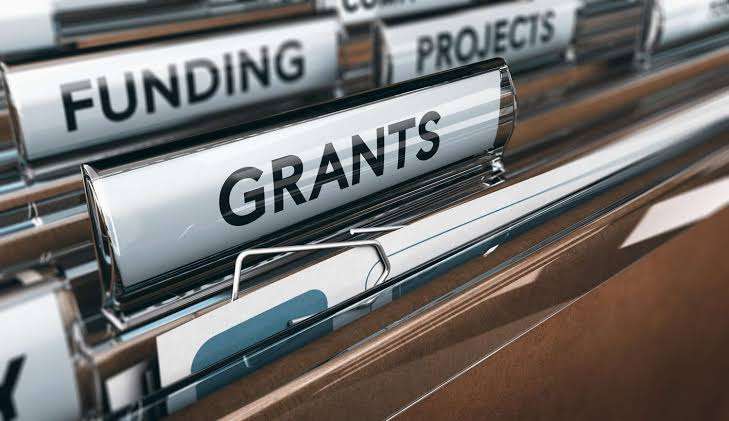In this present day, knowing how to win grants can be a game-changer. Grants have empowered countless entrepreneurs, nonprofits, researchers, creatives, and students to bring their dreams to life without the burden of repayment.
But while grant money may seem abundant, winning it is anything but easy. Behind every successful grant application is a combination of strategy, storytelling, credibility, and an unshakable sense of purpose.
This comprehensive guide is crafted to help you master the art of grant writing and position your proposal to stand out in even the most competitive pools.
Step 1: Clarify Your Vision and Objectives
Before you even begin searching for grants, take the time to define your project’s purpose. Funders want to support initiatives with clear outcomes and measurable impact. Ask yourself:
- What problem does your project address?
- Who will benefit from your work?
- What are the short-term and long-term goals?
Be specific. Vague intentions like “helping the community” won’t cut it. For example, saying “we aim to train 200 unemployed youths in Lagos with digital marketing skills within 12 months” is far more compelling and measurable.
Step 2: Find the Right Grant Opportunities
Not all grants are created equal, and not all grants are meant for your project. Applying blindly wastes precious time and reduces your chances. Instead, look for funding opportunities that align with your niche, and mission.
Start by exploring:
- Government portals (e.g., grants.gov, EU funding platforms, national development agencies)
- International development agencies (e.g., USAID, DFID, GIZ)
- Corporate CSR initiatives
- Foundations and trusts (e.g., Ford Foundation, MacArthur, Rockefeller)
- Local embassies and cultural institutions
- Crowdsourced platforms like FundsforNGOs, GrantWatch, or Devex
Read eligibility criteria carefully. Some grants are restricted by sector, location, or organisational type. Apply only when you meet the minimum requirements.
Step 3: Understand What Funders Are Looking For
Winning grants is not about what you want, it’s about what they want to fund. Funders have missions, values, and strategic objectives. Your job is to demonstrate how your project advances their cause.
They typically look for:
- Relevance: Does your project solve a problem that matters to them?
- Feasibility: Do you have the capacity and expertise to execute it?
- Impact: Can you show clear benefits and outcomes?
- Sustainability: Will your project continue after the funding ends?
- Accountability: Do you have solid reporting and evaluation frameworks?
Read past winning proposals, if available. They often offer clues to what the funder prioritises.
Step 4: Craft a Winning Grant Proposal
The proposal is where your story comes alive. It should be clear, persuasive, and professionally written. While formats differ, most proposals require the following sections:
Executive Summary
A one-page overview of the project, its goals, methods, expected impact, and funding needs.
Problem Statement
Define the issue your project addresses. Use data, research, and real-world examples to show urgency and significance.
Project Description
Explain how you plan to solve the problem. Outline objectives, activities, timelines, and who will do what.
Budget
Provide a detailed, realistic budget. Justify each expense and ensure it aligns with your activities. Avoid inflating figures.
Organisational Capacity
Showcase your team’s experience, skills, and track record. Funders invest in people as much as in ideas.
Monitoring and Evaluation
Explain how you’ll measure success. Use KPIs, reporting structures, and feedback mechanisms.
Sustainability Plan
Describe how the project will live on after the funding ends. Funders want to see long-term thinking.
Step 5: Strengthen Your Supporting Documents
Your proposal is only one piece of the puzzle. Many grants require supporting documents such as:
- CVs or bios of key personnel
- Letters of support or collaboration
- Proof of legal registration (for organisations)
- Financial statements or audits
- Work samples or portfolios
- Theory of change diagrams
These documents reinforce your professionalism and credibility. Organise them neatly, label files clearly, and keep your documentation up-to-date.
Step 6: Beat the Deadline with a Complete Application
Never wait until the last minute to apply. Technical errors, forgotten attachments, or last-minute confusion can undo weeks of effort.
Create a grant submission calendar and set internal deadlines for drafts, revisions, and final checks. Use a checklist to confirm all application components are included.
Double-check spellings, numbers, dates, and contact details. If possible, get a mentor or grant-writing expert to review your application before submission.
Step 7: Follow Up and Prepare for Feedback
Some funders offer feedback to unsuccessful applicants. If you’re not awarded, request a debrief. Analyse what worked, what didn’t, and how to improve your next submission.
Keep a database of all your grant applications—who you applied to, the outcomes, deadlines, and feedback. Over time, this builds institutional memory and improves your future applications.
Also, send a thank-you note when successful. Maintain a relationship with the funder. Good stewardship can lead to future renewals or introductions to other opportunities.
Why Grants Matter And Why They’re So Competitive
Grants are non-repayable funds typically awarded by governments, foundations, corporations, and philanthropic institutions to support initiatives with social, educational, scientific, or creative value.
Unlike loans, grants don’t require repayment, making them one of the most sought-after forms of funding. However, because they’re free money with no equity dilution, competition is fierce.
A well-crafted application can be the difference between being shortlisted or overlooked. To win grants like a pro, you must understand what funders want, speak their language, and present a compelling case for support.
How to Win Grants Like a Pro FAQs
How do I win a grant?
To win a grant, research and identify relevant funding opportunities, carefully review the eligibility criteria and application guidelines, and submit a well-written and compelling proposal that aligns with the grantmaker’s priorities.
What is the best way to find grants?
The best way to find grants is to search online databases, and research government agencies, foundations, and corporations that support projects like yours.
What makes a winning grant proposal?
A winning grant proposal clearly articulates the project’s goals, objectives, and outcomes, demonstrates a deep understanding of the grantmaker’s priorities, and presents a compelling case for funding.
Is it hard to win a grant?
Winning a grant can be competitive, but with a strong proposal, a clear understanding of the grantmaker’s priorities, and a well-planned approach, you can increase your chances of success.
Can I apply for multiple grants for the same project?
Yes, but be transparent. Disclose all funding sources. Funders need to know whether they’re co-funding a project or your proposal is already fully funded.
Which type of grant is the most common?
The most common types of grants are project grants, research grants, and capacity-building grants. Project grants support specific projects or initiatives, research grants fund research and evaluation, while capacity-building grants help organizations build their capacity to achieve their mission.





